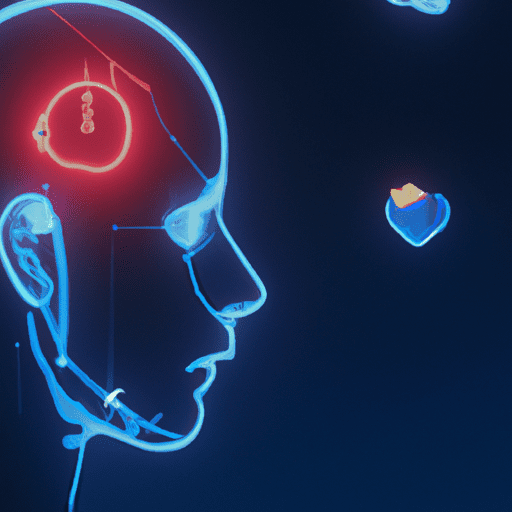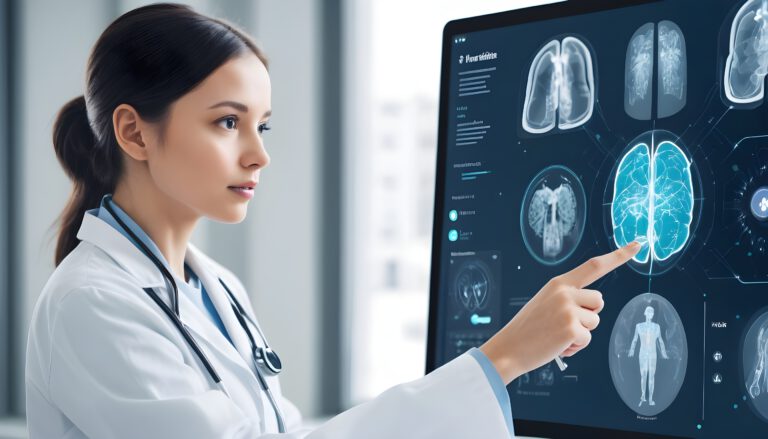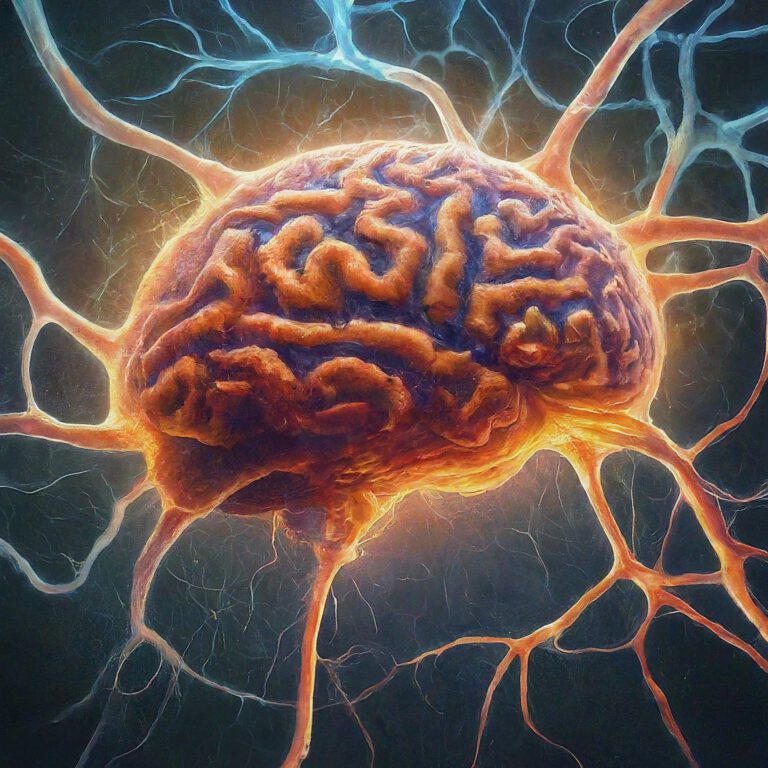-
Table of Contents
“AI in Medicine: Unlocking the Power of Precision Healthcare”
Introduction
The power of Artificial Intelligence (AI) in medicine is undeniable. AI has the potential to revolutionize healthcare, from diagnostics to treatments. AI can help doctors make more accurate diagnoses, provide personalized treatments, and even predict potential health risks. AI can also help reduce costs and improve patient outcomes. AI is already being used in a variety of medical applications, from diagnosing diseases to providing personalized treatments. As AI technology continues to evolve, its potential to revolutionize healthcare is only beginning to be realized.
How AI is Revolutionizing Diagnosis and Treatment in Medicine
The medical field is undergoing a revolution, and it’s all thanks to artificial intelligence (AI). AI is transforming the way doctors diagnose and treat patients, making healthcare more efficient and accurate than ever before.
AI is being used to analyze medical images, such as X-rays and CT scans, to detect signs of disease. AI algorithms can detect patterns in the images that may be too subtle for the human eye to detect. This allows doctors to make more accurate diagnoses and provide more effective treatments.
AI is also being used to analyze patient data, such as medical records and lab results. AI algorithms can detect patterns in the data that may be too complex for the human mind to detect. This allows doctors to make more informed decisions about diagnosis and treatment.
AI is also being used to develop personalized treatments for patients. AI algorithms can analyze a patient’s medical history and genetic data to determine the best course of treatment for that individual. This allows doctors to provide more tailored treatments that are tailored to the individual’s needs.
The potential of AI in medicine is immense. AI is revolutionizing the way doctors diagnose and treat patients, making healthcare more efficient and accurate than ever before. AI is helping to make healthcare more accessible and affordable, and it’s only going to get better as the technology continues to evolve.
Exploring the Benefits of AI-Powered Medical Imaging

The medical imaging industry is on the cusp of a revolution. With the emergence of artificial intelligence (AI) and machine learning, medical imaging is becoming more accurate, efficient, and cost-effective. AI-powered medical imaging is transforming the way healthcare professionals diagnose and treat patients, and the potential benefits are immense.
AI-powered medical imaging is revolutionizing the way healthcare professionals diagnose and treat patients. AI-powered imaging systems can detect and diagnose diseases more accurately and quickly than ever before. AI-powered imaging systems can detect subtle changes in tissue and organs that may be indicative of disease, allowing healthcare professionals to make more informed decisions about diagnosis and treatment.
AI-powered medical imaging is also making healthcare more efficient. AI-powered imaging systems can quickly analyze large amounts of data, allowing healthcare professionals to make decisions faster and more accurately. AI-powered imaging systems can also be used to automate certain tasks, such as image segmentation and classification, which can reduce the amount of time needed to diagnose and treat patients.
Finally, AI-powered medical imaging is making healthcare more cost-effective. AI-powered imaging systems can reduce the cost of medical imaging by eliminating the need for expensive and time-consuming manual processes. AI-powered imaging systems can also reduce the cost of medical imaging by reducing the number of false positives and false negatives, which can lead to unnecessary tests and treatments.
The potential benefits of AI-powered medical imaging are immense. AI-powered imaging systems can improve the accuracy, efficiency, and cost-effectiveness of healthcare, allowing healthcare professionals to provide better care to their patients. As AI-powered medical imaging continues to evolve, the potential benefits will only increase.
The Impact of AI on Precision Medicine and Personalized Care
The potential of artificial intelligence (AI) to revolutionize precision medicine and personalized care is immense. AI has the power to transform healthcare by providing more accurate diagnoses, more personalized treatments, and more efficient care delivery.
AI can be used to analyze large amounts of data to identify patterns and correlations that can help doctors make more accurate diagnoses. AI can also be used to identify potential treatments that are tailored to an individual’s specific needs. For example, AI can be used to analyze a patient’s medical history, lifestyle, and genetic information to identify the most effective treatment for that individual.
AI can also be used to improve the efficiency of care delivery. AI-powered chatbots can be used to answer patient questions and provide personalized advice. AI-powered robots can be used to automate mundane tasks, freeing up healthcare professionals to focus on more complex tasks. AI can also be used to streamline administrative processes, such as scheduling appointments and managing medical records.
The potential of AI to revolutionize precision medicine and personalized care is clear. AI has the power to provide more accurate diagnoses, more personalized treatments, and more efficient care delivery. As AI technology continues to advance, it will become increasingly important for healthcare providers to embrace AI and leverage its potential to improve patient care.
Conclusion
The power of AI in medicine is undeniable. AI has the potential to revolutionize healthcare by providing more accurate diagnoses, faster treatments, and improved patient outcomes. AI can also help reduce healthcare costs by automating mundane tasks and providing more efficient care. AI is already being used in many areas of medicine, and its potential is only beginning to be explored. As AI technology continues to develop, it will become an increasingly important tool in the medical field.



